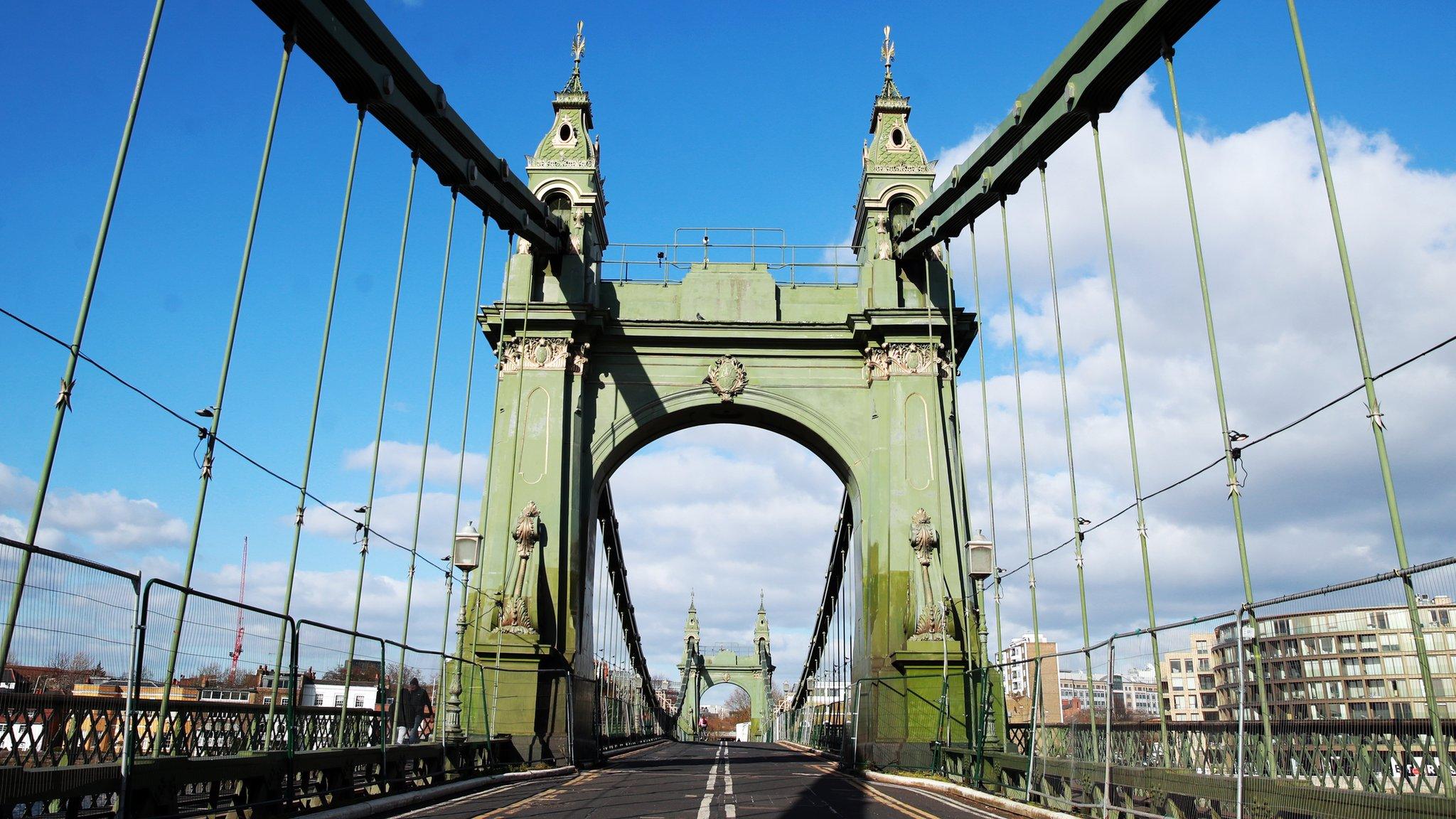Albert Bridge: HGV drivers who use River Thames crossing to be fined
- Published
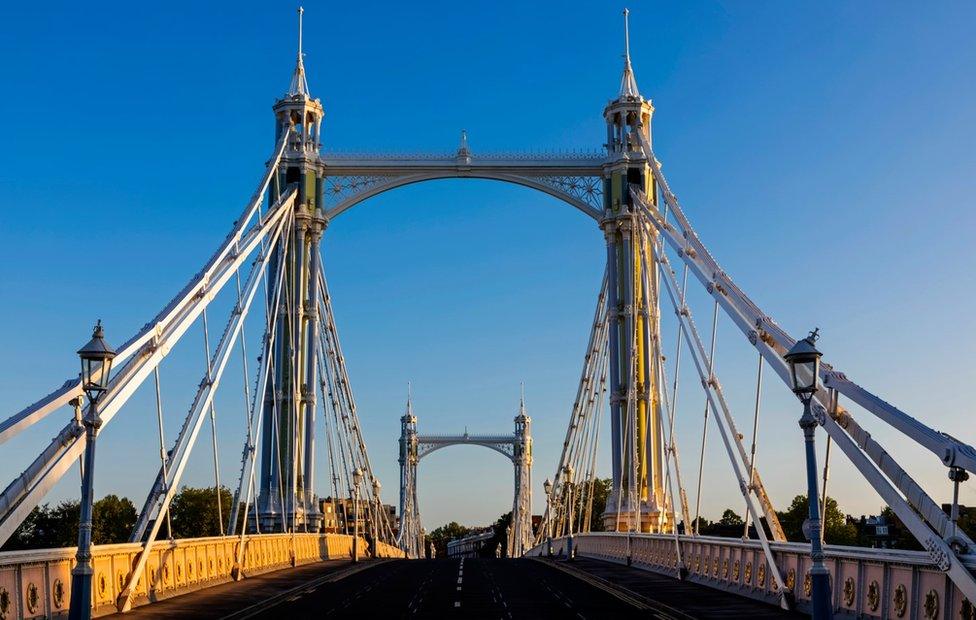
The Grade II*-listed Albert Bridge was completed in 1873
Heavy goods vehicle (HGV) drivers are to be fined for using central London's Albert Bridge, the Royal Borough of Kensington and Chelsea has announced.
The crossing, which links Chelsea and Battersea, has had a three-tonne weight restriction since 2012 but it was only managed using width restriction posts.
Cameras have now been installed to monitor the bridge with penalty charge notices being issued from Thursday.
The council said it wanted to protect Albert Bridge "for the long term".
The Grade II*-listed structure was completed in 1873 and is one of the oldest spanning the River Thames in the capital.
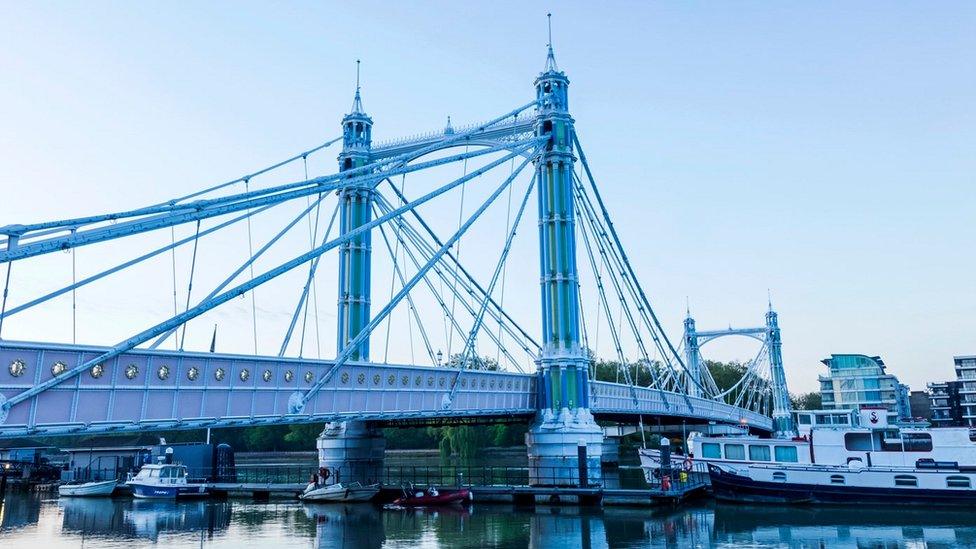
The crossing links Chelsea with Battersea
Originally built as a form of cable-stayed bridge, it was once nicknamed "the trembling lady" because it had a tendency to vibrate when large numbers of people walked over it.
Indeed signs are still attached on the former tollbooths on the bridge warning troops based at what was once the nearby Chelsea Barracks to "break step" when marching across it.
The council said as Hammersmith Bridge remained closed to motor vehicles due to cracks appearing in the structure, it was taking its "responsibility to protect the iconic landmark and vital river crossing very seriously".
As a result it has installed the cameras, put up warning signs on nearby streets and issued more than 1,400 warning notices to drivers since 6 December.
From 11 January, penalty notices of £130 will start being issued to drivers of goods vehicles identified as over three tonnes, although the charge would be reduced to £65 if paid within 14 days.
Are London’s bridges deteriorating?
Cem Kemahli, lead member for planning and public realm, said: "Hammersmith Bridge has been closed to motor traffic for five years. We don't want to be in the same position here in Kensington and Chelsea, which is why we are starting to enforce the weight restriction on Albert Bridge.
"The bridge is structurally sound and perfectly safe, but it is a listed structure and an important river crossing so we need to make sure we protect both the surface and the structure for the long term."
The council added it only had the power to enforce weight limits against goods vehicles, but asked drivers of other vehicles that weigh over three tonnes to stick to other routes in order "to protect the bridge".

Listen to the best of BBC Radio London on Sounds and follow BBC London on Facebook, external, X, external and Instagram, external. Send your story ideas to hello.bbclondon@bbc.co.uk, external
- Published11 April 2023
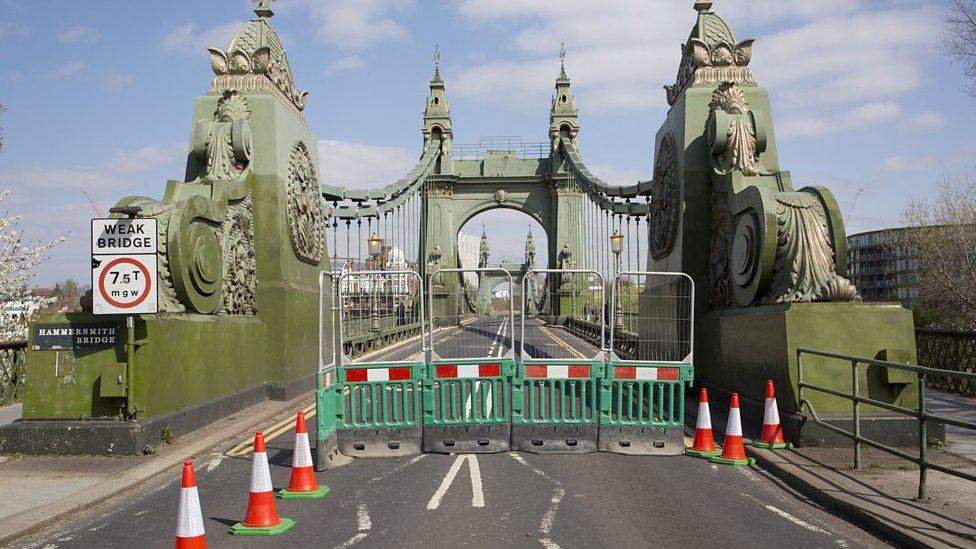
- Published5 May 2023
- Published14 July 2022
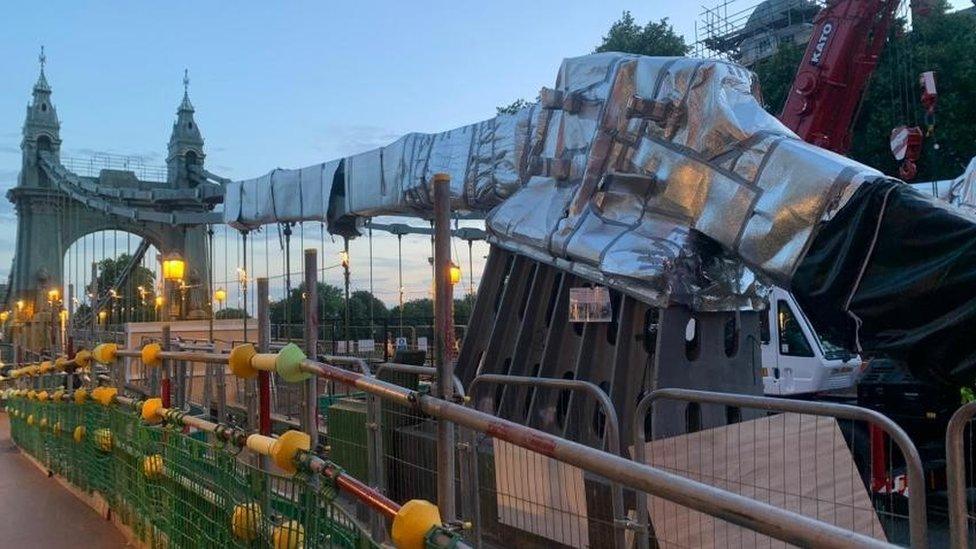
- Published22 March 2022
